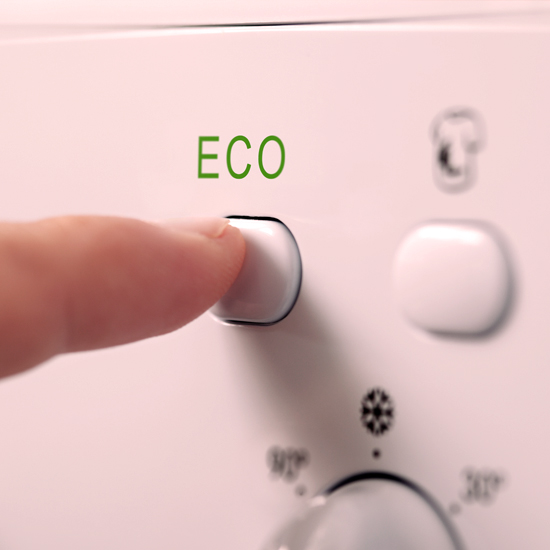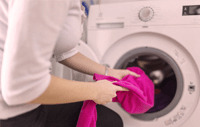While the amount of energy we individually consume has dropped slightly in recent years, thanks in part to improved technology and better habits, many of us are still feeling the pinch of high energy prices.
While we can’t do much about the cost of energy, there are still a lot of ways to stop wasting it. Here are 12 energy-smart suggestions as we head into warmer weather:
- Keep your house cooler by closing doors, windows and drapes on warm or hot days it can avoid the need to blast the air conditioning.
- Using a ceiling fan is another way to cool rooms and keep your AC on standby.
- Programmable thermostats like NEST and others automatically adjust to your family’s schedule so you don’t waste energy while you’re asleep or out of the house you can save 2% on your utility bill for about every 2 degrees you turn it down.
- Replace your air conditioner filter regularly ideally, once a month a dirty filter reduces airflow and makes your machine less efficient.
- Whether they’re light or dark, wash your clothes in cold water most of the energy older washing machines use is to heat the water (modern machines balance the hot and cold water flowing in) and only wash full loads.
- Replace your traditional incandescent bulbs with compact fluorescents (CFLs) or light emitting diodes (LEDs) the newer bulbs use up to 80% less energy and can last up to 25 times longer.
- Turn off your oven about 10 minutes before your meal is cooked the heat still inside the oven will continue to cook your meal.
- Only wash full loads in your dishwasher and choose the air-dry setting (if available).
- If you’re not using your computer, monitor, printer, TV, or lights, turn them off just turning off your lights can save 10-15% on your monthly utility bill.
- Your smartphone only needs an hour or two to recharge don’t leave it plugged in all night.
- Do a careful check on the inside and outside of your windows and doors and seal any cracks or leaks.
- If you haven’t already, install low-flow showerheads and faucets throughout your home.
What are your favorite and most effective ways to save energy throughout your home? Share your ideas with the Shop Talk Blog community forum!
Did you know: Front beats top
Use a top-loading washing machine? Consider buying a front loading one it uses about 40% less water and 50% less energy. (Source)



I like what this article recommends about doing small but significant upgrades such as changing to a more efficient light bulb or only washing full loads. I want to do some upgrades to my home to make sure we save some energy. Upgrading the lights and even the appliances could be a good way of doing so given my homes age and it’s inherent inefficiency.
For about 5 yrs I started using the temperature control on my windows units. I thought I noticed a difference in my bills, I pulled old bills n compared to the new bills, my ex-roommate told me that turning the air on n off when u cool down did not affect the bill as much as leaving it run all day n night, just control the temperature. I am 44 n raised 3 daughter’s, she is 25 n never had her own place. But a couple other people told me she was right. Idk
i just use aircon or heater if i need it
Only flush toilet when I have to. Keep lid closed
When I leave for a few days I lower my hot water heater to the lowest possible
I have been saving money on electricity by using LED rope lights in the living room. The light isn’t as bright as a CFL & helps my family transition to bedtime easier. In the winter I use Christmas LED lights for light in the living room. They are festive, colorful and save money.
I do all on the list
Close shower curtains/doors when not in use . Cabinets and Closets, too, to save heating or cooling uninhabited spaces.
We have been doing these things since 2005. Why was this just printed today.
Our electric company is Unisource in Kingman Az. They spend money every month with different advertising, but never give full information. Besides that they have increased the service charges, and the billing amounts for electric usage. They are rich enough stop the stupid advertising and reduce the billing amounts.
wear more clothes if you are cold , limit television to save also listen to radio.
Area heating and (especially) cooling if you aren’t using the rest of it. A tenth of the space will take not much more than a tenth of the energy. This works best at the margin as large differences can lead to condensation.
To delay turning on air conditioning: when it is cool in the morning turn on attic fans; ceiling fans and put box fans in windows to cool the house. Then before it gets warm in the morning, CLOSE ALL windows and curtains to prevent heat coming in. When necessary later in the day IF YOU MUST-turn on the air-now you’ve delayed it. (also do all baking early morning for the day when it’s cool and when the fans are going.)
We never turn on the air or heat until we absolutely need it. If we are going for a few days we turn it off unless it is below freezing. We use the ceiling fans and open windows for as long as we can which is pretty good here in ARkansas. We have so many trees that it keeps it cool in the house.
If we need it we use it.
Item 6. The new bulbs are over priced. It is not a simple change because of color and amounts of light. Very expensive to have three level lights
There is no clear information on the light produced. They may reduce energy use but they cost me more. Where is the balance?
Read the first paragraph again, carefully. We’ve done most of these (don’t own a smart phone and our programmable thermostat sometimes goes rogue) but perhaps because so many others have also taken measures to save energy, our electric supplier got a 4% rate increase in 2016 and is asking for another 6.3% because of, drumroll here, decreased usage. (Yet they also have an energy use surcharge in summer because of the increased demand. So they CAN have it both ways; we can’t.) So much for any implication that we can reduce the pinch of high energy prices. There’s no way conscientious users can offset such price increases. Time to start generating your own electricity and ignore these counterproductive measures.
If you must use electricity to heat water, buy a hybrid electric water heater. Hybrids primarily use a heat pump to heat with an auxiliary radiant heater to supliment the heat pump when hot water is being used at a higher rate, especially when taking baths, showers and washing clothes in hot water.
A 50 gallon hybrid water heater costs about $1,000 and another $1,000 for installation. A regular electric water heater costs about $600 and is less expensive to install. However, a hybrid electric will save $400 – $500 more in electric costs annually. It pays for itself in 2 years. If your old water heater must be replaced imeadiately, using a hybrid electric heater will pay for itself even sooner.
Use a smart power strip or timers for TV, cable boxes, computers, and other electric devices. Smart power strips cost $25 – $50. Smart Strips sense when no one is in the room. Then is it turns the electric devices off.
When a cable box is left on it uses more electricity than a refrigerator (which uses the fourth most electricity in your home. Only HVAC, hot water and each cable box uses more electricity than a refrigerator. You may need to leave only the master cable box on if rec ordings are scheduled.
interested in saving money
i have ceiling fan but not sure which direction to use in summer or winter? what should heating & air be set on?
Close off unused rooms and CLOSET doors when not in use – keep them cool in winter
Thank you, we think alike! But, please continue to mail me suggestions!